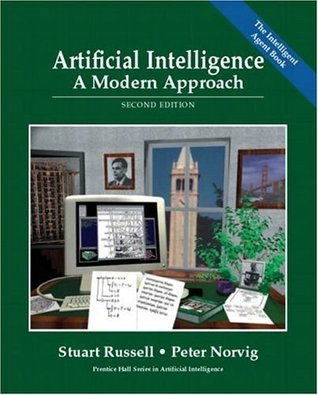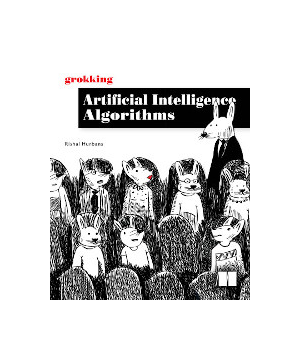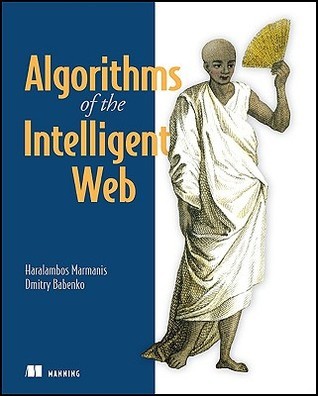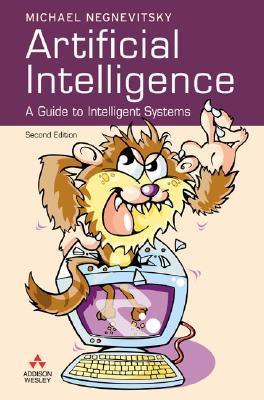World Book Day: Top 10 books on AI
On this World Book Day, Electronic Specifier has compiled a list of the top 10 books on artificial intelligence and machine learning.
Artificial Intelligence: A Modern Approach by Stuart Russell and Peter Norvig

This is a comprehensive and authoritative guide to the field of artificial intelligence. The book covers topics ranging from the basics of AI to advanced AI techniques such as machine learning, robotics, and natural language processing.
It provides an in-depth discussion of the principles, techniques, and applications of AI. It also explores the philosophical implications of AI and its potential for transforming our lives.
With its clear explanations and numerous examples, Artificial Intelligence: A Modern Approach is an ideal resource for anyone interested in learning about this rapidly evolving field.
Grokking Artificial Intelligence Algorithms by Joshua Eckroth

Grokking Artificial Intelligence Algorithms by Joshua Eckroth is an in-depth guide to understanding and implementing artificial intelligence algorithms. Through a series of examples and exercises, Eckroth guides readers through the fundamentals of AI algorithms and how to apply them to solve real-world problems.
In addition to covering the fundamental concepts, the book provides examples of AI algorithms in action and teaches readers how to debug and optimise algorithms for maximum efficiency.
Finally, the book provides guidance on how to design complex AI systems and use them to simulate real-world scenarios. This book is essential for anyone interested in learning more about the power of artificial intelligence algorithms.
Principles of Artificial Intelligence by Nils J Nilsson

This is a comprehensive introduction to the field of artificial intelligence AI. The book covers the basics of AI, including its history, basic concepts, and applications. It provides readers with an overview of AI research and popular algorithms, as well as an introduction to modern AI techniques such as robotics, natural language processing, machine learning, neural networks, and deep learning.
The book also explores the ethical implications of AI and provides a comprehensive look at the future of AI. With its comprehensive coverage of AI fundamentals, this book is perfect for anyone looking to gain a better understanding of the field.
Probabilistic Robotics by Sebastian Thrun, Wolfram Burgard and Dieter Fox

This is an ideal guide to the modern world of robotics. It is designed to give the reader a deep understanding of the principles and algorithms that drive intelligent robotic behaviour.
The book begins with an introduction to artificial intelligence and robotics, covering topics such as sensor-based control, motion planning, and decision making. It then examines the design of robotic systems from a computational perspective, discussing topics such as path planning, localisation, and mapping, and learning algorithms.
The authors then explore how robots can interact with their environment through vision, speech recognition, and natural language processing. They also cover advanced topics such as reinforcement learning, autonomous navigation, and humanoid robots.
Finally, the book provides an overview of current research trends in the field and offers suggestions for future research directions. It is an invaluable resource for students, practitioners, and researchers interested in understanding the technology behind modern robots.
Deep Learning with Python by Francois Chollet

Deep Learning with Python by Francois Chollet is a guide to using the power of deep learning for practical applications. This book provides an introduction to the field of deep learning, covering topics such as neural networks, convolutional networks, recurrent networks, and more.
It explores how to build, train, and deploy deep learning models in Python, using popular libraries such as Keras and TensorFlow. Additionally, it covers important topics such as hyperparameter tuning, data preprocessing techniques, and debugging strategies.
Finally, it provides a range of case studies from real-world applications that showcase the effectiveness of deep learning for solving complex problems.
Algorithms of the Intelligent Web by Haralambos Marmanis and Dmitry Babenko

This book guides readers through building intelligent web applications. Written by Haralambos Marmanis and Dmitry Babenko, the book provides a thorough overview of the technologies, algorithms and methods used to create powerful, intelligent web applications.
The authors begin by discussing the basics of web architecture and how to design efficient, scalable systems. They then explore topics such as data mining, machine learning, natural language processing, search engine optimisation, and information retrieval. The authors provide practical examples of how to apply these algorithms in real-world scenarios.
Lastly, they discuss how to integrate algorithms into existing web applications and how to use them to develop new ones. Algorithms of the Intelligent Web is an invaluable resource for developers looking to create intelligent web applications.
Machine Learning: An Algorithmic Perspective by Stephen Marsland

This book provides a detailed overview of the various techniques and applications of machine learning, from supervised and unsupervised learning, to reinforcement learning and deep learning. It also covers the most important topics in the field such as neural networks, genetic algorithms, probabilistic graphical models, big data analytics, and data mining.
The chapters are organised around the different techniques and applications, making it easy to understand the fundamentals of each technique. Furthermore, the book includes numerous examples and exercises to help readers develop an understanding of the key concepts. With its comprehensive coverage of both theoretical and practical aspects of machine learning, this book is an essential read for researchers and practitioners in the field.
Pattern Recognition and Machine Learning by Christopher M. Bishop

Pattern Recognition and Machine Learning by Christopher M. Bishop is an essential guide for anyone interested in gaining a comprehensive understanding of the fundamentals of pattern recognition and machine learning. This book provides a balanced and self-contained introduction to the field, covering both the theoretical foundations and practical applications of these techniques.
After introducing the basic concepts of pattern recognition and machine learning, Bishop explains the mathematics and algorithms used to solve problems. He then moves on to discuss a variety of techniques, including neural networks, support vector machines, and Bayesian methods. He also covers supervised and unsupervised learning methods, as well as the design, implementation, and evaluation of machine learning systems.
Finally, he discusses recent advances in the field and presents a variety of real-world applications. With its comprehensive coverage of the latest research and practical advice on implementation, Pattern Recognition and Machine Learning provides readers with a thorough grounding in the principles of this field.
Artificial Intelligence: A Guide to Intelligent Systems by Michael Negnevitsky

This book provides an introduction to artificial intelligence (AI) for both students and professionals. By covering the basics of AI, including its history, current state, and potential applications, it offers a comprehensive overview of this rapidly advancing field.
The book explains the fundamental concepts of AI such as problem solving, knowledge representation, machine learning, and robotics. It also includes detailed descriptions of various AI techniques such as genetic algorithms and fuzzy logic. In addition, readers are provided with insights into the impact of AI on society and its potential benefits, as well as its ethical implications.
The book concludes with an assessment of the current state of AI technology and a look at how it is likely to develop in the future. With its accessible language and clear explanations, Artificial Intelligence: A Guide to Intelligent Systems is an ideal resource for those wishing to gain a comprehensive understanding of this fascinating field.
The Art of Prompt Engineering with ChatGPT: A Hands-On Guide by Nathan Hunter

The Art of Prompt Engineering with ChatGPT: A Hands-On Guide by Nathan Hunter is a comprehensive guide to using the open-source chatGPT library to create cutting-edge conversational AI applications. It takes the reader step-by-step through the process of designing, training, and deploying powerful AI models.
The book covers everything from basic concepts and best practices to advanced topics such as natural language understanding and machine learning. With detailed instructions and code examples, it enables readers to quickly get up and running with their own projects. The Art of Prompt Engineering with chatGPT is an invaluable resource for developers looking to leverage the latest advances in artificial intelligence.










